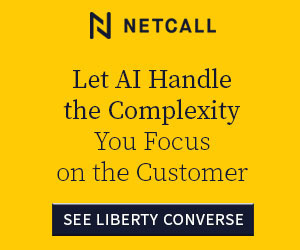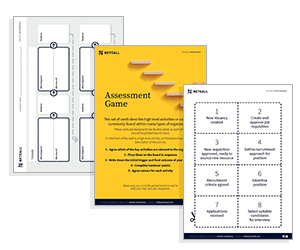Nicky Hjerpe at Netcall explores how AI in the public sector delivers far more than cost savings, revealing the deeper, transformative impact it can have on communities, staff and service delivery.
Let’s face it – when we talk about AI in the public sector, conversations inevitably gravitate toward cost savings. With budget constraints tighter than ever, this focus makes perfect sense.
But here’s the thing: While AI certainly delivers impressive financial efficiencies, its real impact goes much deeper than what shows up on balance sheets.
For today’s forward-thinking local authorities, success isn’t just measured in pounds saved, it’s about transforming lives and communities.
Netcall are championing a more holistic view of what return on investment truly means when implementing AI in the public sector.
It’s about empowered staff, proactive community support and services that actually work for citizens when they need them most.
More Than Just Numbers
Councils diving into AI in the public sector typically see quick wins: Automated triage systems that work around the clock, diminishing paperwork and dramatically faster response times. These are undoubtedly wins. But the genuine ROI story includes:
- Citizen experiences that actually impress, rather than frustrate
- Early intervention that prevents costly crisis management down the line
- Smart resource utilisation allowing your talent to focus where the human touch matters most
These benefits don’t fit neatly into spreadsheet cells, but they’re game-changers for modern public service delivery.
Augmenting Teams, Not Replacing Staff
Let’s bust a persistent myth: AI in the public sector isn’t about replacing your workforce. It’s about liberating them from the soul-crushing mundane tasks that drain their energy and motivation.
When AI handles repetitive, mundane processes, something remarkable happens. Your team rediscovers why they chose public service in the first place – to help people with complex problems that require human judgment, empathy and expertise.
The result is lower burnout rates, better staff retention and teams with the bandwidth to innovate (rather than struggling to keep up).
Predicting Needs Before They Become Problems
The most exciting shift that AI in the public sector enables isn’t just about speed. It’s about foresight.
Imagine identifying emerging housing issues before they lead to homelessness, or spotting early indicators that suggest social care intervention might soon be needed.
To capture the full value of AI in the public sector, we need to expand our definition of ROI to include:
- Service quality that residents notice and appreciate
- Operations that flow smoothly with fewer bottlenecks and errors
- Teams that report higher job satisfaction and purpose
- Reduced emergency interventions through early action leading to demand reduction
These metrics tell the true story of transformation, where social impact and operational excellence meet.
Fast Implementation, Fast Results
Unlike the IT projects of the past, modern AI solutions don’t require months of painful integration. Our Liberty platform comes with AI that’s already trained specifically for local government use cases, allowing councils to see tangible improvements within weeks, not years.
The True ROI That’s Reshaping Local Government
The ultimate ROI of AI in councils isn’t about doing the same things more efficiently, it’s about fundamentally reimagining public services.
Breaking down departmental silos and creating citizen-centred experiences that actually make sense from the user perspective.
As AI capabilities continually evolve, so does the potential to deliver even greater value to communities. For councils willing to embrace this change, the future isn’t just about surviving budget cuts – it’s about thriving through genuine transformation.
This blog post has been re-published by kind permission of Netcall – View the Original Article
For more information about Netcall - visit the Netcall Website
Call Centre Helper is not responsible for the content of these guest blog posts. The opinions expressed in this article are those of the author, and do not necessarily reflect those of Call Centre Helper.
Author: Netcall
Reviewed by: Megan Jones
Published On: 11th Jul 2025
Read more about - Guest Blogs, Netcall, Nicky Hjerpe






 Netcall is trusted by organisations worldwide, with 9 out of 10 customers ready to recommend us. With Liberty Converse CX, you can streamline operations, enhance customer engagement, and achieve real, measurable results.
Netcall is trusted by organisations worldwide, with 9 out of 10 customers ready to recommend us. With Liberty Converse CX, you can streamline operations, enhance customer engagement, and achieve real, measurable results. 









